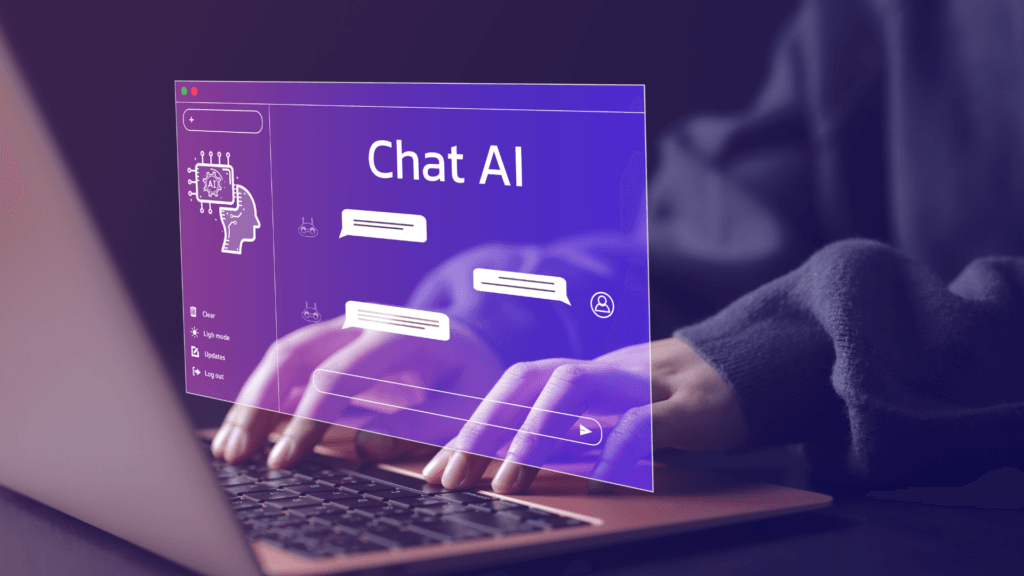The Future of AI in Business: How Companies Can Leverage Artificial Intelligence for Growth

Artificial Intelligence (AI) has become a cornerstone of modern business, transforming industries by automating processes, enhancing customer experiences, and optimizing operations. Companies around the world are increasingly adopting AI technologies to gain a competitive edge, streamline workflows, and drive innovation. However, the road to AI adoption is not without challenges. Businesses must navigate the high costs of implementation, address ethical concerns around data privacy and bias, and consider the implications of job displacement. Despite these hurdles, the benefits of AI are clear, and those who adopt it strategically stand to achieve significant growth. This article explores how AI is reshaping various business sectors and analyzes its broader implications, providing a balanced look at both its opportunities and challenges.
AI in Automating Business Operations

AI is revolutionizing business operations by enabling companies to automate repetitive tasks, reduce costs, and improve overall efficiency. A great example of this is Walmart, which has integrated AI into its supply chain management to predict demand, optimize delivery routes, and manage inventory. By replacing manual processes, Walmart has significantly reduced waste and saved millions of dollars annually.
While Walmart’s success is evident, AI’s broader impact on operational efficiency cannot be overstated. AI-driven automation allows companies to respond to real-time data, adapt to market fluctuations more swiftly, and reduce human error. This level of agility is essential in today’s fast-paced global market, where delays or inefficiencies can lead to missed opportunities and revenue losses. Beyond cost savings, AI in operations enhances sustainability by optimizing resource usage, a factor that will become increasingly important as businesses face pressure to adopt greener practices.
Challenges and Ethical Considerations: Despite these benefits, businesses must be cautious of potential pitfalls. AI-driven CRM systems require large amounts of customer data, raising concerns about data privacy. Companies must ensure they are compliant with regulations like GDPR in Europe to avoid legal and reputational risks.
AI in Marketing and Lead Generation

AI’s influence on marketing is profound, especially when it comes to automating lead generation and improving customer targeting. AI-powered algorithms can analyze customer behavior, track engagement, and identify potential leads far more efficiently than human teams ever could. For instance, marketing departments worldwide are using AI to increase lead generation by 50% and reduce call times by 60%, allowing businesses to focus on high-value tasks like strategy and campaign refinement.
The traditional manual methods of lead generation, which were time-consuming and prone to error, are being replaced by AI-driven tools that deliver real-time insights and enable hyper-targeted marketing campaigns. This level of personalization, much like in CRM, is now expected by consumers. As digital marketing continues to evolve, companies that leverage AI to target the right customers with the right message at the right time will not only improve conversion rates but also strengthen brand loyalty.
Broader Implications: AI in marketing also helps companies adapt quickly to changes in consumer behavior, which is particularly important in a post-pandemic world where online shopping and digital engagement have surged. AI allows for more agile marketing strategies, ensuring businesses remain relevant and competitive in dynamic markets.
AI in Personalized Content Recommendations

One of the most recognizable uses of AI today is in personalized content recommendations, particularly in the entertainment and streaming sectors. Netflix has long been a leader in this area, using AI algorithms to analyze user preferences and offer personalized viewing suggestions. This has replaced traditional content curation methods, which relied on general popularity or manual recommendations.
Netflix’s AI-driven approach has had a measurable financial impact, generating approximately $1 billion annually from personalized recommendations. The success of this strategy illustrates how AI personalization is no longer a novelty—it’s a consumer expectation. In fact, AI-driven personalization is becoming a standard feature across digital platforms, from e-commerce sites to social media, as consumers increasingly demand tailored experiences.
Global Implications: As more companies worldwide adopt AI for personalization, we see a shift toward a more customer-centric business model. Whether it’s a streaming platform or an online retailer, businesses are now expected to deliver personalized experiences, or risk losing customers to competitors who can. This global trend underscores the transformative power of AI in shaping the future of digital engagement.
AI in Talent Sourcing

The use of AI in talent sourcing and recruitment is transforming how companies hire, particularly in the United Kingdom’s service and IT sectors. By automating tasks like resume screening, AI helps companies quickly identify top candidates, reducing the time and effort required for initial candidate assessments. Approximately 26% of businesses are already using AI for recruitment, a number that’s expected to grow as AI technologies become more advanced.
AI recruitment tools not only streamline the hiring process but also reduce unconscious bias, ensuring a fairer and more objective selection process. Traditional hiring methods, which were labor-intensive and often influenced by human biases, are being replaced by algorithms that can evaluate candidates solely based on their qualifications. This shift is particularly beneficial for businesses looking to increase diversity and inclusivity in their workforce.
Ethical Considerations: However, the use of AI in recruitment is not without ethical challenges. Algorithms must be carefully designed and monitored to avoid perpetuating existing biases, such as those based on gender or ethnicity. Companies should establish clear ethical guidelines and regularly audit their AI systems to ensure fairness and transparency.
AI in Cybersecurity

Cybersecurity is one of the areas where AI has had the most transformative impact, particularly in mitigating risks and detecting fraud. Around 51% of firms globally use AI to enhance their cybersecurity strategies, leveraging AI’s ability to detect threats in real time and respond more effectively than traditional security systems.
AI has replaced traditional cybersecurity protocols that often relied on manual threat detection and response. These older systems are no longer sufficient to combat today’s increasingly sophisticated cyberattacks. AI excels in analyzing vast amounts of data, identifying patterns that indicate security breaches, and taking action before the attack can cause significant damage. This proactive approach to cybersecurity is critical for businesses that handle sensitive data, such as financial institutions and healthcare providers.
Broader Implications: As cyber threats become more advanced, businesses worldwide will increasingly rely on AI to safeguard their operations. However, this reliance on AI also introduces new risks, such as the possibility of AI systems themselves becoming targets of cyberattacks. Companies must ensure their AI systems are secure, while also developing contingency plans to address potential vulnerabilities.
AI in Financial Services

In the financial sector, AI is transforming risk assessment, fraud detection, and process automation. A key example is JP Morgan’s COiN platform, which uses AI to review legal documents—a task that previously took human employees thousands of hours. COiN processes 12,000 documents in seconds, drastically reducing both time and costs.
AI’s broader impact on financial services goes beyond efficiency. By automating risk assessment, AI reduces human error and enhances the accuracy of financial forecasts, helping institutions make better, data-driven decisions. Additionally, AI improves fraud detection by identifying unusual patterns in real-time, which traditional methods might overlook. As AI becomes more integrated into financial operations, we can expect financial institutions to become more agile and responsive to market changes.
Challenges: Despite these benefits, the adoption of AI in finance raises concerns about data privacy and the potential for AI-driven decisions to overlook human nuances. Financial institutions must strike a balance between automation and human oversight to ensure AI systems are making ethical, fair, and accurate decisions.
AI in Supply Chain Management

AI has proven to be a game-changer in supply chain management, especially in optimizing logistics and reducing inefficiencies. Companies like Walmart in the U.S. use AI to predict consumer demand, streamline inventory management, and optimize delivery routes. These AI systems have replaced traditional, manual supply chain management methods, which were often slow and prone to errors.
The ability to analyze real-time data allows AI to quickly adjust to changes in demand, ensuring that the right products are in stock at the right time. This not only improves customer satisfaction but also reduces waste and costs associated with overproduction or delayed deliveries. Globally, AI’s role in supply chain management is driving businesses toward more sustainable and efficient practices, which are critical as companies face increasing pressure to reduce their environmental impact.
Global Context: Emerging economies are also beginning to adopt AI in supply chain management, though at a slower pace due to the high costs of implementation. However, as AI technologies become more affordable and accessible, we can expect wider global adoption.
AI in Retail

The retail industry is undergoing a major transformation with the adoption of AI, particularly in enhancing customer experiences. Amazon Go, for example, uses AI technologies like computer vision and sensor fusion to create cashierless stores, where customers can pick up items and leave without going through traditional checkout processes. Computer vision allows machines to interpret visual data, while sensor fusion combines input from multiple sensors to make more accurate decisions.
This innovation not only saves time for customers but also reduces operational costs for retailers, with AI-driven stores like Amazon Go cutting operational expenses by up to 25%. Beyond cost savings, the seamless shopping experience AI enables is reshaping customer expectations. As AI technologies like these become more widespread, the future of retail will likely see more automation, with a focus on convenience and personalization.
Global Implications: While the U.S. is leading the way with AI-driven retail innovations, other regions like Europe and Japan are also making strides. In Japan, for example, AI is being used to predict consumer trends and optimize stock levels, further proving AI’s global potential in reshaping the retail experience.
AI is transforming the business landscape across industries, enabling companies to streamline operations, improve customer experiences, and enhance decision-making. While AI offers tremendous opportunities for growth and innovation, it also presents challenges, such as ethical concerns, implementation costs, and potential job displacement. To fully harness AI’s potential, businesses must adopt it strategically and ethically, ensuring transparency and fairness in their AI systems. As AI technologies continue to evolve, those who embrace them will be well-positioned to lead in an increasingly competitive global market.
